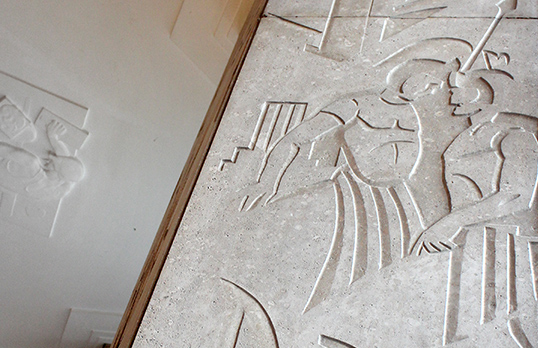In 2023, RIBA set to work as a re-organised, streamlined operation – focused on delivering for architects and architecture worldwide.
Our members continued to contend with a myriad of challenges – from fee pressures and insurance complexities, to the task of delivering a low carbon future - but our own business intelligence revealed a resilient profession; one that bounced back from the pandemic, with revenue increasing amongst Chartered Practices and returning to a long-term trajectory of modest growth.
For the profession, 2023 was also marked by the introduction of the Building Safety Act – the greatest regulatory shake-up of the industry, in England, since the 1980s. Much of RIBA’s work therefore focussed on preparing and supporting members for the introduction of new legislation, and launching a Principal Designer Register, enabling members to demonstrate their knowledge, skills, experience and behaviours to fulfil the Principal Designer duty holder role.
Addressing the climate emergency topped our agenda. From helping to develop the UK Net Zero Buildings Standard, to influencing government policy and regulation, and engaging in discussions at COP28, we continued to support our members and promote our vision for a low carbon future built environment. We also successfully campaigned for critical new building safety measures, supported our members through a time of significant regulatory change, and ploughed ahead with our education reform agenda, calling for flexible study routes to make architecture more accessible.
Diversity and Inclusion was central: we looked inwards and outwards, revising our own policies and processes as well as equipping practices and members with tools and actions to drive change.
We also, of course, continued to celebrate and showcase excellence through our globally standard-setting awards, talks and exhibitions; and we laid the foundations for House of Architecture – our major investment programme to make architecture more accessible for everyone.
We spent a significant amount of time recalibrating our finances, and scoping some substantial long-term investment plans. Commercially, we reviewed, re-shaped and redefined the way we work, developing new business models and partnerships to ensure revenue streams contribute to our long-term financial sustainability.
The highlights in this report reflect only a fraction of the work that took place across the organisation, drawing on the expertise of our many volunteer members to support our global membership and fulfil our charitable purpose.
We have an exciting future ahead.
Jack Pringle, Chair of Board of Trustees
Valerie Vaughan-Dick, Chief Executive
Muyiwa Oki, President
















